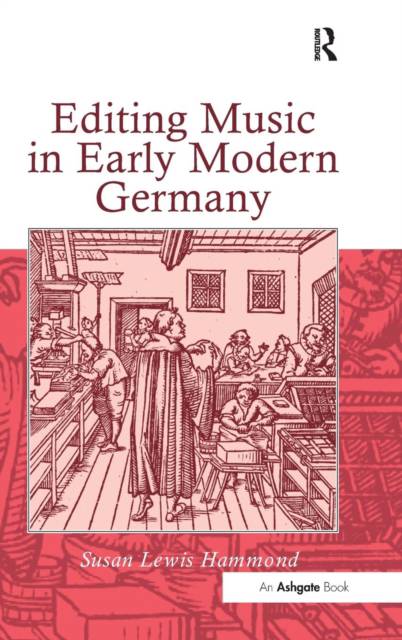
- Retrait gratuit dans votre magasin Club
- 7.000.000 titres dans notre catalogue
- Payer en toute sécurité
- Toujours un magasin près de chez vous
- Retrait gratuit dans votre magasin Club
- 7.000.000 titres dans notre catalogue
- Payer en toute sécurité
- Toujours un magasin près de chez vous
290,45 €
+ 580 points
Format
Description
Editing Music in Early Modern Germany argues that editors played a critical role in the transmission and reception of Italian music outside Italy. Like their counterparts in the world of classical learning, Renaissance music editors translated texts and reworked settings from Venetian publications, adapting them to the needs of northern audiences. Their role is most evident in the emergence of the anthology as the primary vehicle for the distribution of madrigals outside Italy. As a publication type that depended upon the judicious selection and presentation of material, the anthology showcased editorial work. Anthologies offer a valuable case study for examining the impact of editorial decision-making on the cultivation of particular styles, genres, authors and audiences. The book suggests that music editors defined the appropriation of Italian music through the same processes of adaptation, transformation and domestication evident in the broader reception of Italy north of the Alps. Through these studies, Susan Lewis Hammond's work reassesses the importance of northern Europe in the history of the madrigal and its printing. This book will be the first comprehensive study of editors as a distinct group within the network of printers, publishers, musicians and composers that brought the madrigal to northern audiences. The field of Renaissance music printing has a long and venerable scholarly tradition among musicologists and music bibliographers. This study will contribute to recent efforts to infuse these studies with new approaches to print culture that address histories of reading and listening, patronage, marketing, transmission, reception, and their cultural and political consequences.
Spécifications
Parties prenantes
- Auteur(s) :
- Editeur:
Contenu
- Nombre de pages :
- 286
- Langue:
- Anglais
Caractéristiques
- EAN:
- 9780754655732
- Date de parution :
- 28-10-07
- Format:
- Livre relié
- Format numérique:
- Genaaid
- Dimensions :
- 156 mm x 234 mm
- Poids :
- 580 g







